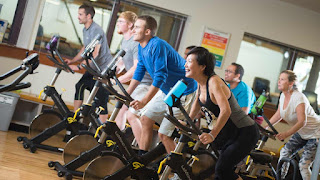The benefits of staying physically active over summer
Summertime is a less intense period in contrast to the past academic year.
For others of you who are still on placements or working on research projects,
there may still be a familiar sense of structure and routine. Either way, the
benefits of staying physically active could help you maintain a healthy body and
mind.
“Physical activity”
can include any type of exercise or prolonged movement, but other activities
like diet, sleep, hobbies/interests, socialising, and summer work are essential.
Finding balance between being active
and other commitments and/or your academic workload can be tricky, but the rewards
can be fruitful.
Regular activity
There’s good evidence
that regular (physical) activity can
enhance our physical and mental wellbeing, positively
affecting mood, alertness, and energy levels. The key word is “regular”. Regular
and consistent physical activity among other helpful activities promotes a
sense of purpose and commitment towards taking care of ourselves.
Different forms of
regular activity work together more effectively than individually, e.g. irregular and low-quality
sleep will affect our appetite, mood and energy levels. Our bellies can become confused about when
to expect food if our sleeping/eating patterns are irregular, which can impact our
diet, our capacity to exercise, work, socialise, etc.
A
regular balanced diet can also help your physical and mental wellbeing.
Investing time in your interests and socialising with trusted people can also provide
ways of maintaining a support structure and help us cope with daily challenges.
Socialising can produce pleasure; working can promote satisfaction; investing
time in our interests/hobbies reinforces engagement and fulfilment—all things
that contribute to staying physically and psychologically well.
However,
maintaining regular physical activity isn’t always straightforward or easy.
Know your limitations
Putting too much
pressure on yourself to stick inflexibly to a routine can backfire: unplanned
events do happen, and we must find ways to adapt, which may involve postponing
our planned activities without being destructively self-critical if we feel we’ve
failed. Knowing your limitations is also important, so setting realistic goals plays
a crucial role in maintaining wellbeing.
Prolonged worrying if
you’re not able to sleep or exercise enough can cause anxiety, self-critical
thoughts, and feeling low. Developing an understanding and tolerant way of
being with yourself can enhance your resilience and help you recover from difficult
or unfavourable circumstances.
Get support from those around you
You may find it
difficult to socialise over the summer if, for example, many of your friends
are not around. There may be some classes or activities at UH or around your
local area, so it might be worth checking some of those out.
Sometimes you may not be in the mood to be physically active.
Could you find ways to listen and understand what you need? In some situations,
trying to be active even if you’re not feeling good can help lift your mood.
Sometimes we may need to be active first even if our minds and bodies aren’t in
the right frame of mind to do so. You can also reach out and speak to someone
you trust: friends, family, your tutor, and you’re welcome to contact Student
Wellbeing about any concerns you’re having.
Peter De Santis Counsellor University of Hertfordshire
Peter De Santis Counsellor University of Hertfordshire


